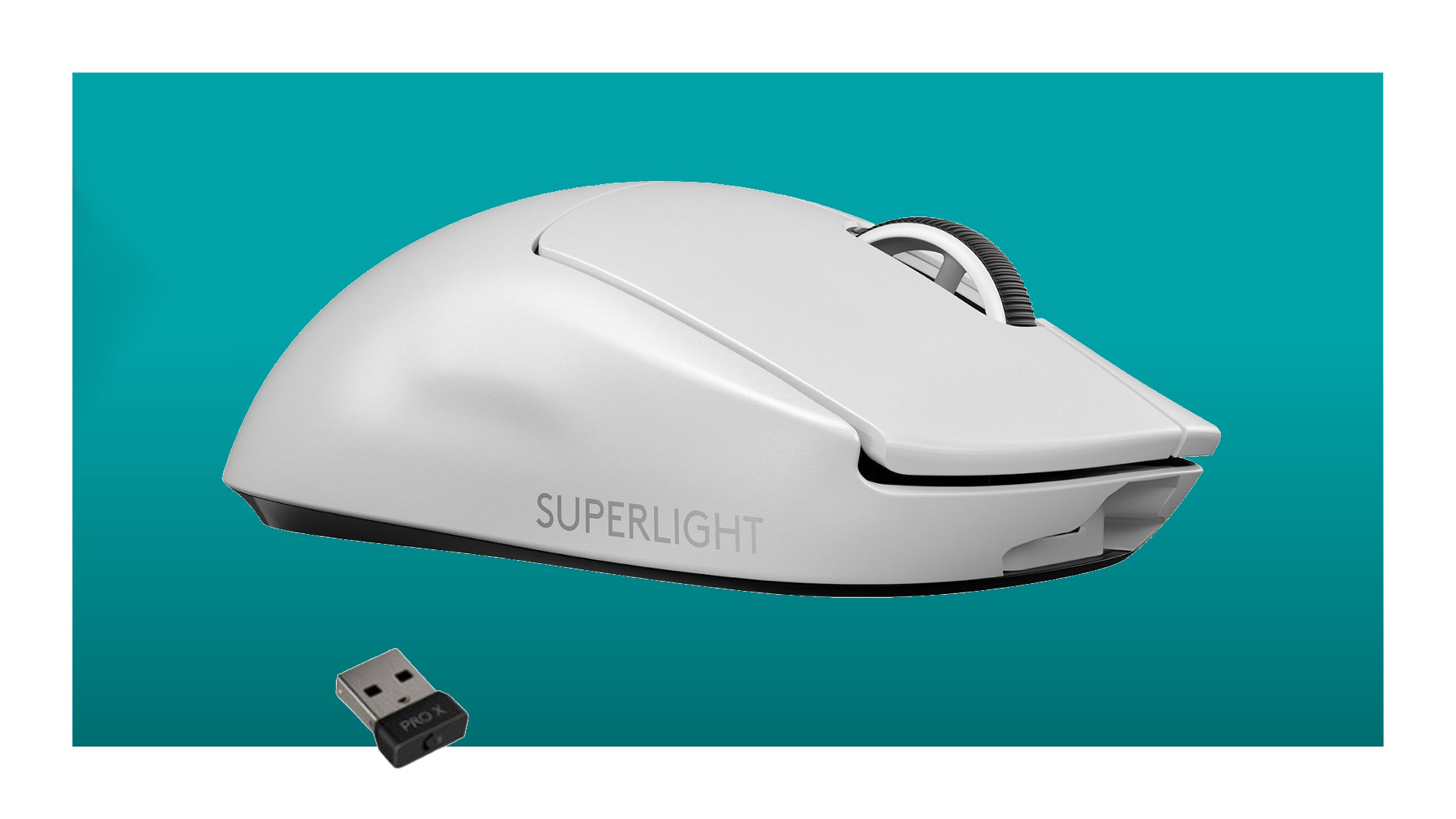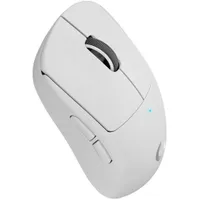
Logitech G Pro X Superlight | Wireless | 25,600 DPI | 5 buttons | 70-hour battery | Right-handed | $159.99 $94.99 at Best Buy (save $65)
Ignore the fact that this model has been around for three years or so, as it's still a fantastic lightweight, wireless gaming mouse. One of the best, in fact. This deal's on the black version, but you might also be able to pick it up in a gorgeous white or hot pink.
Price check: Amazon $99.99 | Newegg $159.99
The Logitech G Pro X Superlight is more my sweet baby than any of my other components or peripherals (though it's a close call between that and my custom keyboard). It is, in my opinion, the best gaming mouse around if you're after something lightweight. Naturally, then, it's very easy for me to recommend it with this whopping $65 Prime Day discount that puts it at $95 from Best Buy or $100 on Amazon (Prime Exclusive).
- We're curating the best Prime Day PC gaming deals right here.
And yes, this is the circa 2020-21 Superlight we're talking about, not the Superlight 2. We'll get into that shortly, but for now let's talk about what makes the Superlight—a mouse that's got me through probably thousands of hours of gaming, not to mention hundreds of work days—so special.
Back when The G Pro X Superlight came out, most lightweight gaming mice, such as the Glorious Model O, were honeycombed. Honeycombing the shell is certainly one way to shed weight, but it looks a bit rubbish (IMO) and can collect gunk in a way that's slightly more disgusting than full-bodied shells.
Enter the Superlight, which somehow managed to keep itself down to a meager 63 g without poking holes in itself. When I got my hands on one, this wizardry seemed all the more impressive when I felt just how solid it is. It passes the squeeze and drop test by far. The Logitech G Pro and G Pro Wireless feel sturdy and premium, and the Superlight proves that Logitech can maintain this kind of quality even in an ultralight mouse.
Everything else is quality, too, from its sensor to its scroll wheel and (my personal favorite thing about the Superlight) its satisfying but light button clicks. Light clicks are important if you want to game competitively or for long stretches of time, and this is where I think the Superlight 2 got it wrong, because it has heavier clicks.
The Superlight 2 does improve things in some important respects, for instance by having a slightly better sensor (which you almost certainly won't notice) and USB-C charging (which you almost certainly will). It also has hybrid optical-mechanical sensors which should, in theory, reduce the occurrence of double-click issues. But I've never encountered Logitech's fabled double-click issues, and reports of issues since the early days of the Superlight are few and far between.
Having heavier clicks, though, in my opinion, makes the Superlight 2 not worth its extra cost. If prices were close then it'd be a tougher call, but as it stands the Superlight 2's current discount makes it $27 more expensive than the V1 at $122.55 (Prime Exclusive). I'd stick with the OG lightweight hero, personally.
The fact is, the Superlight was so ahead of its time when it came out that it's still a top-tier ultralight pick. I can't fault it, especially not for the price it's at this Prime Day. If I didn't own one already, I'd be picking it up in a heartbeat.
Keep up to date with the most important stories and the best deals, as picked by the PC Gamer team.

Jacob got his hands on a gaming PC for the first time when he was about 12 years old. He swiftly realised the local PC repair store had ripped him off with his build and vowed never to let another soul build his rig again. With this vow, Jacob the hardware junkie was born. Since then, Jacob's led a double-life as part-hardware geek, part-philosophy nerd, first working as a Hardware Writer for PCGamesN in 2020, then working towards a PhD in Philosophy for a few years while freelancing on the side for sites such as TechRadar, Pocket-lint, and yours truly, PC Gamer. Eventually, he gave up the ruthless mercenary life to join the world's #1 PC Gaming site full-time. It's definitely not an ego thing, he assures us.


